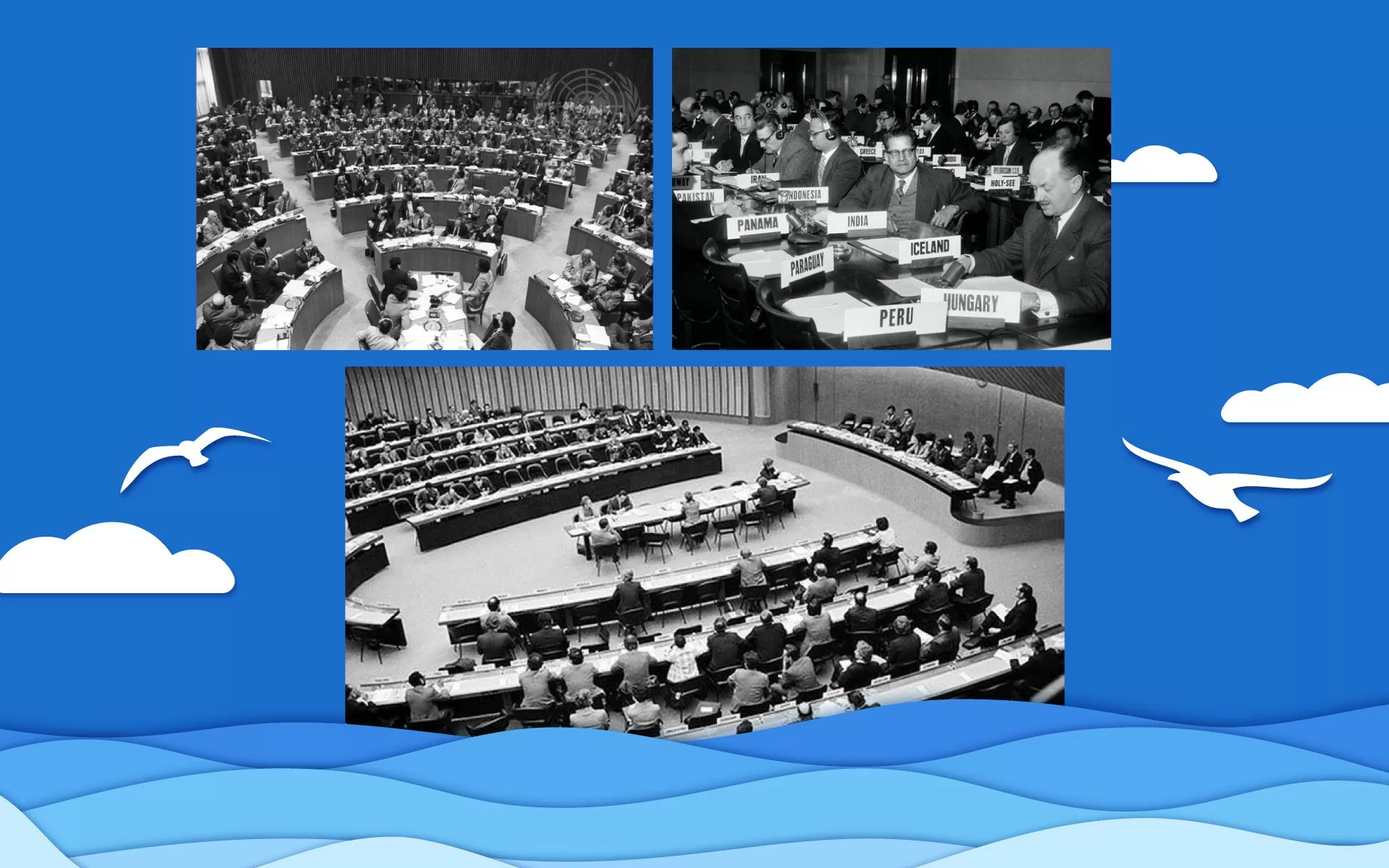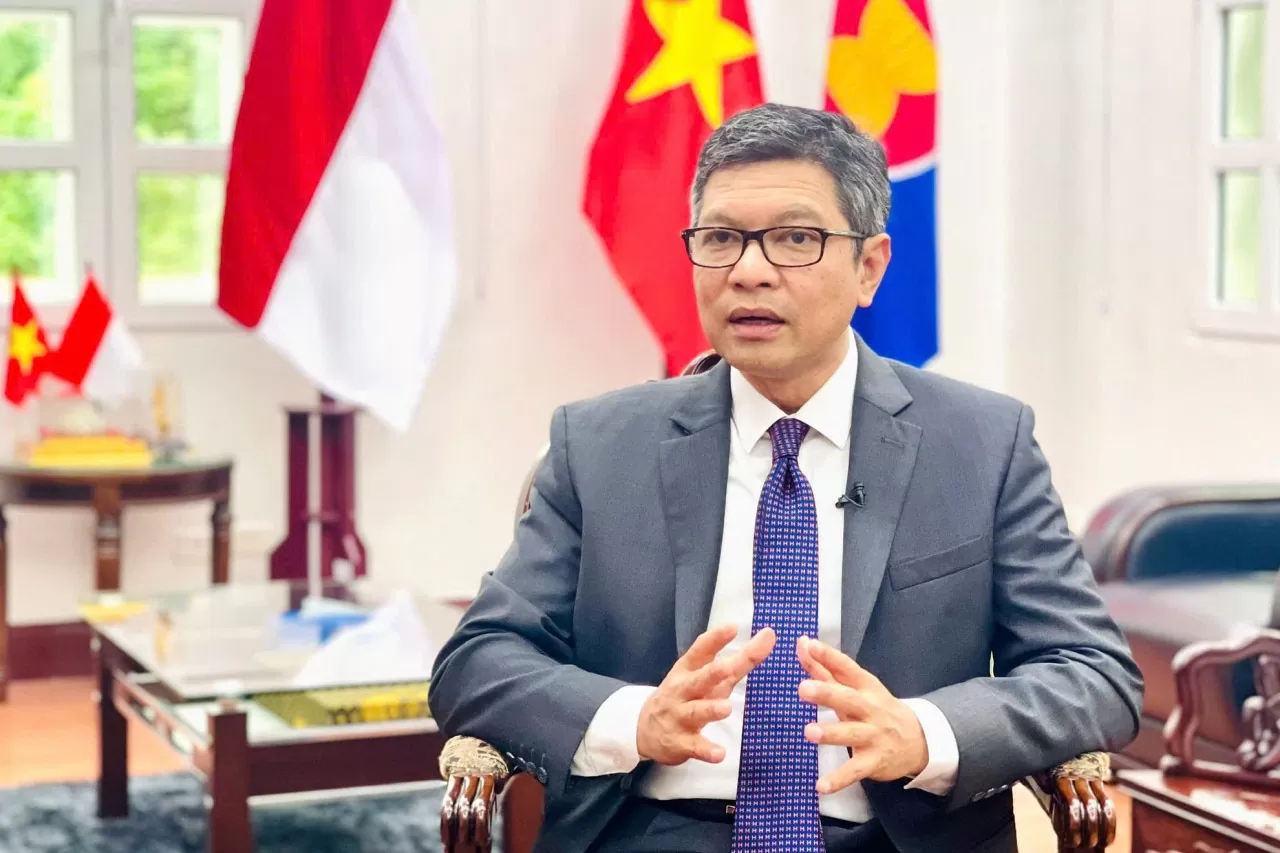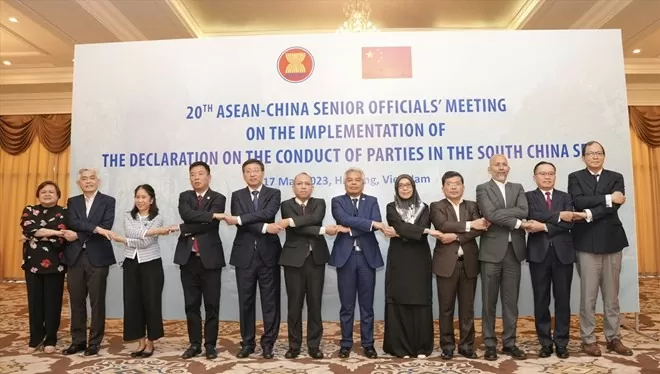
UNCLOS plays a vital role in promoting peace, security and stability in the East Sea: Indonesian Ambassador
Latest
 |
| After three decades, UNCLOS remains highly relevant and instrumental in shaping global maritime governance. (Photo: Anh Tuan/un.org) |
What are your comments on the significance and the role of the UNCLOS during 3 decades?
As the world's largest archipelagic state, with over 17,400 islands, Indonesia relies significantly on UNCLOS as a legal reference to govern many aspects of its ocean such as maritime boundaries and management of marine resources. The inclusion of the provisions and principles governing archipelagic states within UNCLOS is regarded as one of Indonesia’s greatest diplomatic successes. It grants Indonesia’s sovereignty over its archipelagic waters and the right to establish archipelagic baselines.
 |
| Indonesian Ambassador to Vietnam Denny Abdi. (Source: VGP News) |
The role of UNCLOS is crucial in safeguarding countries’ sovereignty and sovereign rights over maritime jurisdiction, promoting sustainable use of marine resources, and facilitating maritime cooperation. This role is achieved through the delicate balance provided by UNCLOS, which harmonizes the interest of coastal states with the interests of the international community.
After three decades, UNCLOS remains highly relevant and instrumental in shaping global maritime governance. By providing a comprehensive legal framework, UNCLOS facilitates the peaceful settlement of disputes, sustainable use of fisheries and marine resources, marine environment protection and safeguarding maritime security and safety. This holistic approach ensures that UNCLOS remains applicable to a wide range of maritime issues.
UNCLOS also has proven to be adaptive in addressing emerging maritime challenges, since its framework can be strengthened as a basis for new agreements and protocols. The latest example are the Biodiversity Beyond National Jurisdiction (BBNJ) Agreement in 2023 which enhances the UNCLOS framework, promoting sustainable use and conservation of marine biodiversity in areas beyond national jurisdiction.
Could you please evaluate Vietnam's efforts to promote the implementation and development of UNCLOS, especially when it is facing many new challenges related to the sea?
Vietnam's early ratification of the UNCLOS in July 1994, signify its commitment towards the legal order and peaceful uses of the seas and oceans. Through early ratification of UNCLOS, Vietnam enhanced its international standing to contribute to strengthening peace, security, cooperation and friendly relations among all nations in maritime domain.
Since then, Vietnam has been a steadfast proponent of UNCLOS; consistently advocating for the peaceful resolution of maritime disputes; promote peace, security, stability, safety, and freedom of navigation in the maritime domain; and joined common efforts towards the sustainable use of marine resources.
Vietnam’s commitment to UNCLOS is essential given the ongoing tensions in the South China Sea, where adherence to UNCLOS is highly important in reducing tension, building mutual trust and paving ways towards peaceful resolution of disputes consistent with UNCLOS.
Vietnam's active participation at the Meeting of States Parties to UNCLOS and the UN Ocean Conference contributed towards the common efforts in addressing emerging maritime challenges such as marine plastic debris, climate change, sustainable use of marine biodiversity, and sustainable fisheries.
On the development of the Law of the Sea, in October 2022, Vietnam together with like-minded countries introduced an initiative to seek International Court of Justice (ICJ)’s advisory opinion on obligations of states in respect of climate change.
In 2023, Vietnam also participated in the International Tribunal for the Law of the Sea (ITLOS) advisory opinion proceedings concerning state obligations related to climate change. The proceedings were initiated by the Commission of Small Island States on Climate Change and International Law.
By participating in these proceedings, Vietnam’s demonstrated its support for ITLOS and proactive role on marine environmental protection. In its Advisory Opinion on May 2024, ITLOS confirmed that states have obligations under UNCLOS to prevent, reduce, and control pollution of the marine environment from greenhouse gas emissions.
The ITLOS Advisory Opinion contributed to the development on the Law of the Sea by addressing legal questions regarding the obligations of states to respond to climate change and protection and preservation of the marine environment.
Furthermore, Vietnam's involvement in the BBNJ Agreement also highlights its dedication to promoting sustainable use of marine resources and protecting marine biodiversity. Vietnam participated in the negotiation process of BBNJ since 2004, signed the Agreement on 20 September 2023 and is currently preparing its ratification.
Through these contributions, Vietnam contributes positively to the broader goal of the development of the law of the sea and to the sustainable and peaceful uses of the seas and oceans.
 |
| Delegates at the 20th ASEAN-China Senior Officials' Meeting on the Implementation of the Declaration on the Conduct of Parties in the South China Sea (SOM DOC) in March 2023. (Source: MOFA) |
What are your comments on the cooperative efforts of Vietnam and Indonesia in Applying UNCLOS?
Indonesia and Vietnam have engaged in various cooperative efforts to implement UNCLOS and to foster regional maritime peace, security, safety and cooperation. In terms of maritime boundary delimitation, both countries have reached an agreement to delimit their continental shelf in 2003 and the Exclusive Economic Zones in 2022.
Through the two agreements, both countries established clear maritime boundaries for continental shelf and Exclusive Economic Zones. The 2022 EEZ agreement marked a significant milestone not only for both countries but also for the region. The agreement reflects the ability of both countries to settle maritime delimitation peacefully according to international law, particularly UNCLOS.
In the region, the conclusion of the agreement will serve as an example on how to create a conducive environment and at the same time develop sustainable marine economy. With Vietnam’s vast capacity and Indonesia’s abundant fisheries resources, both countries can cooperate to build strong fisheries processing industries based on sustainable fishing practices.
To further implement UNCLOS provisions in the field of maritime security and safety, Indonesia and Vietnam are actively engaged in various initiatives and agreements to enhance their maritime security and safety cooperation.
In December 2021, Badan Keamanan Laut Indonesia (Bakamla) and Vietnam Coast Guard signed a Memorandum of Understanding (MoU) to strengthen cooperation in maritime security and safety. Furthermore, the Coast Guard and Navy of both countries also conducted joint exercises regularly to enhance maritime security and law enforcement capacity contributing to maintaining regional maritime security, safety and stability.
What is your opinion on the role of UNCLOS in promoting peace in the South China Sea?
UNCLOS sets out the legal framework within which all activities in the oceans and seas must be carried out. Towards attainment of this objective, UNCLOS plays a vital role in promoting peace, security and stability in the South China Sea by providing a comprehensive legal framework that clarifies maritime rights and interest, establish robust dispute resolution mechanisms, and guide the management of maritime affairs between countries.
With regard to maritime zones, UNCLOS regulates the breadth of the territorial sea, the contiguous zone, the exclusive economic zone (EEZ), and the continental shelf. It invalidates any claims that do not conform with the maritime jurisdictional regimes established by the Convention. Through the establishment of clear maritime zones, UNCLOS create rules for countries in negotiating and settle its maritime delimitation based on international law.
In line with the objectives of the promotion of peaceful use of the seas and oceans as stipulated in the Preamble of UNCLOS, states have the obligation to maintain peace, security, cooperation and friendly relations and to settle any disputes through peaceful means. The same obligation also integrated into the 2002 Declaration on the Conduct of Parties in the South China Sea, which serves as the basis for ASEAN and China to handle their differences in a constructive manner and prevent escalation of tensions.
By adhering to UNCLOS, states commit to upholding international law and norms in all activities at sea. This adherence is essential for maintaining order and predictability in the region and ensures that all states, regardless of size or power, are subject to the same set of rules, reducing the risk of miscalculations and conflicts at sea.
UNCLOS also facilitate resolution of disputes through legal and peaceful means. The presence of dispute resolution mechanisms under UNCLOS, such as the International Tribunal for the Law of the Sea and arbitration offer a legal avenue for countries to resolve their maritime disputes peacefully.









